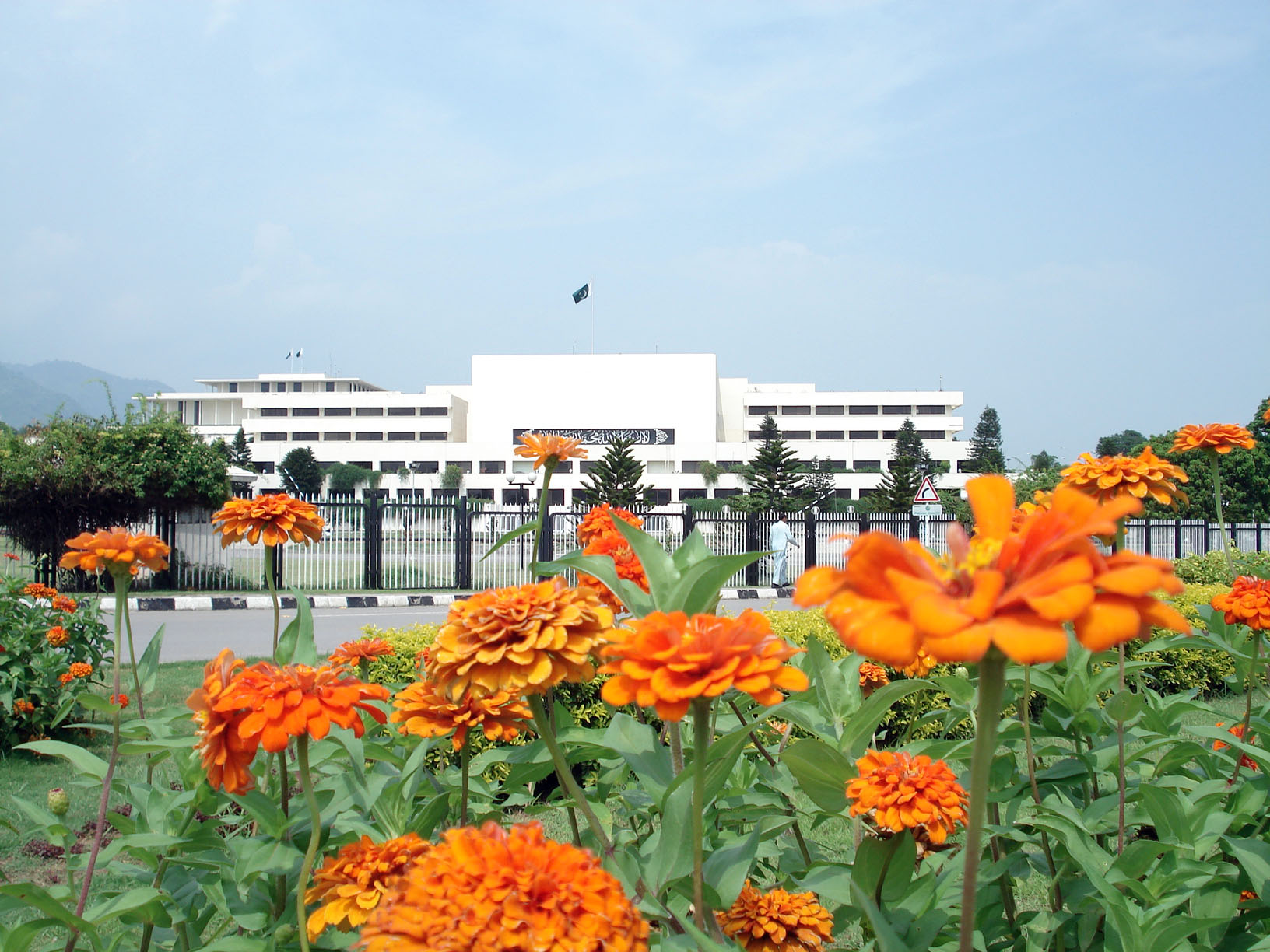Parliament building in Islamabad, Pakistan
Copyright© Uroojmirza71, via wikimedia, CC BY-SA 3.0
Political situation A democracy in great need of reform
Pakistan is facing major domestic policy challenges. They include an unstable majority situation in parliament and government, political unrest, and terrorist attacks, especially by the Islamist Pakistani Taliban. The country is also confronted with a protracted economic and financial crisis, high levels of government debt, a high inflation rate, a food and energy crisis, the impacts of climate change, and widespread poverty. The country lacks the foreign exchange needed to pay for necessary imports. Pakistan has been on the brink of default several times.
In the parliamentary elections in February 2024, the Pakistan Movement for Justice (PTI) was barred from the polls. The party of the country's last Prime Minister, Shehbaz Sharif, the Pakistan Muslim League (N) (PML-N), won 80 seats and now forms the biggest recognised group in parliament. Since the election, Sharif has continued to act as Prime Minister. One of the main goals of his coalition government is to overcome the economic and financial crisis.
Democracy and the rule of law
In 2010, a constitutional amendment was adopted. Among other things, it strengthened parliament, the position of the Prime Minister, the powers of the provinces vis-à-vis central government and the independence of the judiciary. The right to information and the right to education were also enshrined in the constitution.
In 2018, the constitution of Pakistan was amended again in order to make what used to be called the Federally Administered Tribal Areas (FATA) part of the Province of Khyber Pakhtunkhwa. This reform was an important step towards completing Pakistan's unity and towards establishing the rule of law and democracy in the region. However, the country has so far not been able to achieve greater equality of standards of living across provinces or to enforce its monopoly on force throughout the country.
Pakistan's political sphere and administrative bodies are characterised by a lack of transparency, corruption, and players pursuing vested interests. While the separation of powers does exist, the parliament and the judiciary only play their oversight role to a limited extent. In the recent past, restrictions have been imposed repeatedly on the activities of civil society organisations. In 2023, the Corruption Perceptions Index (External link) published by Transparency International ranked Pakistan 133rd out of the 180 countries assessed.
Deficits in the area of human rights
Although Pakistan has ratified the main international human rights conventions, implementation is often inadequate.
In many rural regions, women are largely excluded from public life. The lower strata of society, minorities and women are disadvantaged in the court system. The 2023 Global Gender Gap Index (External link) compiled by the World Economic Forum ranks Pakistan 142nd out of 146 countries assessed.
Freedom of expression and of the press is subject to what are in some cases significant restrictions. The media are under pressure both from government entities and from extremist organisations. Social media play an important role in shaping people's opinions. The 2024 World Press Freedom Index (External link) compiled by the non-governmental organisation Reporters Without Borders ranks Pakistan 152nd out of 180 countries evaluated.
Freedom of religion is restricted as well. In particular, members of religious minorities, such as Ahmadis, Christians, Hindus and Sikhs, are facing discrimination.
Pakistan's internal security is threatened by terrorism, political and religious extremism, and separatist movements. The security situation is fragile. There are anti-terrorism laws that have been tightened several times, suspending a number of fundamental rights. The powers of security authorities have been expanded significantly over the past few years.
As at: 07/08/2024
